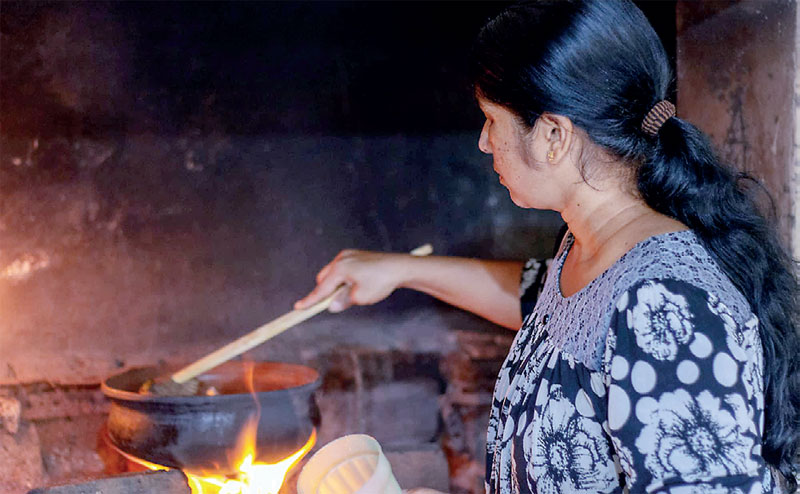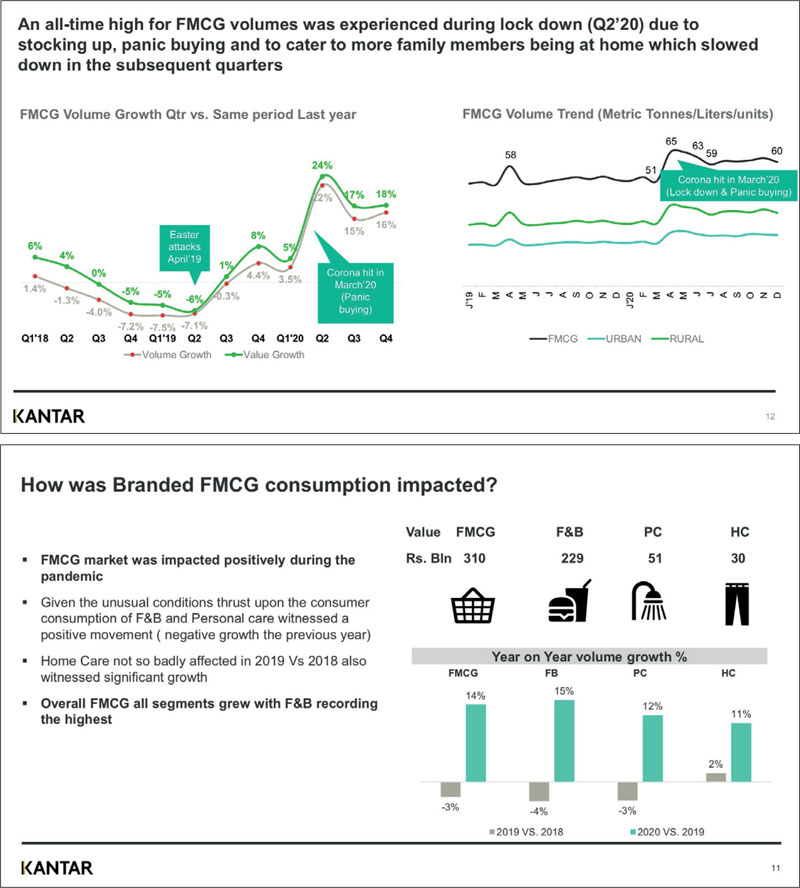Thursday Feb 19, 2026
Thursday Feb 19, 2026
Wednesday, 29 December 2021 00:44 - - {{hitsCtrl.values.hits}}

Sri Lankan households adapted well to the pandemic
 When the pandemic struck and the lockdown happened in March 2020, many were not aware how to react. But Sri Lankan people being resilient, within six days got their act together and commenced production and then the logistical system kicked in. To be honest I know of many companies, mainly in the export sector that never stopped their operations and production continued right across 2020 and 2021. It was a signal to the world, showing the power of the private sector of Sri Lanka to meet the demands of a consumer even during severe disruption in the environment.
When the pandemic struck and the lockdown happened in March 2020, many were not aware how to react. But Sri Lankan people being resilient, within six days got their act together and commenced production and then the logistical system kicked in. To be honest I know of many companies, mainly in the export sector that never stopped their operations and production continued right across 2020 and 2021. It was a signal to the world, showing the power of the private sector of Sri Lanka to meet the demands of a consumer even during severe disruption in the environment.
Agile leadership
To my mind it was an essence of strong leadership that was demonstrated. As Unilever Chairperson Hajar Alafifi said at the APIIT MBA Diary presentation, “strong brands are built during tough times”. She went on to say that what a brand says in the media must be implemented on the field, it is only then that credibility and trust comes into a brand – which is essentially what companies that were resilient did. There were significant changes that had to be done to the production process, like having a two-shift system so that if one team gets the COVID-19 virus, the other team takes on the challenge at hand. Similarly, we saw structural changes to the sales and logistics system that had to be done due to the supply chain disruptions that happened in Sri Lanka and globally.
Private sector builds business
Sri Lanka saw drastic behavioural changes in the first lockdown quarter. There was higher home stocking – urban and rural households alike – and obviously as the family was confined to the home, there was a higher household consumption.
As per ‘figure 1’ of the Kantar household panel presented at a Ceylon Chamber of Commerce conference, it is very evident in Q2 2020 that the volume growth experienced increased by 24% as against the average growth of 5% and 8% in the last two quarters.
However, we saw that in the subsequent quarters the volume growth dropped to around 17-18%, which meant that people were going back to the previous behaviour patterns, but yet it was skewed at a higher end of consumption on pre-pandemic levels. The companies that catered to the changing consumer lifestyles benefited from the upward trend. This came through with deep consumer insights that came with very tough working conditions as research companies had to do online surveys, which was a tough task. However, the total support service chain also adapted.
Private sector drives SL
Let’s accept it, Sri Lankan companies, be it Food, Beverage, Personal Care or FMCG, matured out to cater to the disruptive consumer behaviour seen during the year. In fact, it is fair to say that the real maturity of management was seen in the private sector on how to motivate people even working from home and dealing with COVID-19 bursts inside the company. Overall consumption increased by 30%. Even household durable companies experienced unprecedented growth, doubling business during the pandemic. This was attributed to the father spending more time at home and also getting involved in the household chores that resulted in a pure masculine upgrade of the overall kitchen infrastructure. As per ‘figure 2,’ once again from the presentation made by Kantar at the Ceylon Chamber of Commerce, we see that in the pandemic year, FMCG businesses grew by 14% as against the previous year (-3% decline in volume) whilst Food and Beverage grew by 15% as against the -4% the year before. We see a similar trend in Personal care and Homecare segments of business, which tells us the resilient behaviour of the private sector in relation to the changing consumer needs.
Rotary support private sector
In this backdrop Rotary Sri Lanka conceptualised the ‘COVID-19 Control Environment’ certification with the Sri Lanka Standards Institute (SLSI) that gave strength to companies. Today we see the number one tea company Akbar Brothers, food giant Nestle, top telco Dialog, 125 supermarket outlets of Keells Super, blue-chip Aitken Spence, agri expert CIC and top dairy company Fonterra, championing this concept internally. Over 400 entities have received the certification and all credit to SLSI for driving the project.
The recertification of the entries that is happening in 2021 is an indication that the concept has helped the companies to make the new normal behaviour into the DNA of the organisation. In my view, it was a classic example of a service organisation supporting organisations to protect a human being from a deadly virus in a country. In this backdrop the health sector started the vaccination program with the support of Rotary and thereafter, with the brilliant support of the public sector, saw 72% of the people being administered with the first vaccination, 63% with second vaccination and 14% with the booster.
Government fails
In this backdrop, we see how the Government leadership has totally failed to support the private sector and the 21 million consumers of Sri Lanka. I guess the proverb, ‘absolute power corrupts absolutely,’ is a classic case study in the world where poor leadership has taken the total macro environment to ruin. The economy is in tatters with bad decisions – namely the illogical organic fertiliser decision. The President single-handedly championed this cause globally even though the academia and key public sector officials advised the hierarchy on this strategy. Sri Lanka is now heading to a food security disaster on rice, vegetables and fruit. The agricultural ministry having six secretaries in the current tenure is the poor governance we have seen.
The alleged corruption and irregularities starting from the LNG energy deal, the Sugar Scam of Lanka Sathosa, liquid fertiliser product quality issue and the Litro Gas explosions, are just few examples of absolute poor leadership, poor governance and absolute callous behaviour of the State towards the innocent people of Sri Lanka.
Next steps
It’s tough to predict what the future holds for Sri Lanka given the State decision that we will not go to the IMF for assistance. But the summary is simple – the people of Sri Lanka helped the country manage COVID-19, whilst the private sector went through drastic changes to cater to the disruption in the marketplace in the last two years. But the Government has failed to give the leadership that is required.

(The thoughts are strictly the personal views of the author and do not reflect the organisations he serves in Sri Lanka and the South Asian Region)